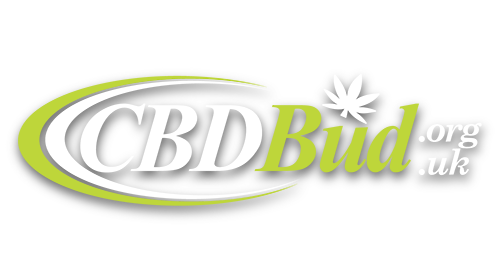Navigating the complex web of CBD regulations can be a daunting task, particularly when the laws change from state to state. Age restrictions on CBD purchases are an especially critical detail that enthusiasts, professionals, and health advocates must be aware of. Every day, new users and retailers step into the burgeoning CBD market, and understanding who can legally purchase these products is essential. This guide breaks down the legal age requirements for purchasing CBD across different states, providing clarity in an often murky regulatory landscape.
Understanding the Legal Framework of CBD Purchases
At a federal level, the 2018 Farm Bill legalised the production, sale, and consumption of hemp-derived CBD products that contain less than 0.3% THC. However, when it comes to setting the legal age for purchasing these goods, the bill remains silent, leaving the decision to individual states. The variations in state laws can range significantly, from aligning it with the legal age for alcohol consumption to a unique age threshold specific to best 2000mg CBD oil.
Federal Regulations on CBD
It’s important to note that while the federal government provides guidelines on the legality of CBD, enforcement is primarily left to state authorities. The Food and Drug Administration (FDA) also plays a role by regulating health claims and the safety of CBD products.
Variations in State Laws
Every state has the autonomy to establish its own laws regarding CBD. These can encompass age requirements, the licensing of producers and retailers, restrictions on advertising and claims, and more. When it comes to age, some states mirror their tobacco laws, while others set no specific age for CBD but might have restrictions on THC content or other criteria.
A Deep Dive into the Legal Age Requirements
To provide a comprehensive understanding, we will now explore the legal minimum age for purchasing CBD products in each state.
Alabama
In Alabama, the legal age for CBD purchase is 19, aligning it with tobacco laws. This same age threshold applies to the possession of CBD.
Hawaii
Hawaii requires consumers to be 21 or older to purchase CBD. The state has some of the strictest cannabis laws in the U.S., and these extend to hemp-derived products.
Texas
CBD consumers in Texas must be at least 18 years old to make purchases. The state further mandates that a person under the age of 18 may not be prosecuted for possession of a controlled substance if they’re seeking medical attention.
New York
New York allows individuals as young as 18 to purchase CBD. However, the legal age for medical marijuana use is 21.
Florida
Florida aligns the legal age for purchasing CBD with the age for buying tobacco products, which is 21. The state also has an extensive medical marijuana program.
Oregon
In Oregon, where recreational marijuana is legal, consumers must be 21 to how old do you have to be to buy CBD? The state has been at the forefront of cannabis legalization, and its laws reflect this.
Pennsylvania
The legal age for purchasing CBD in Pennsylvania is 18. The state’s medicinal cannabis program offers access to a variety of CBD products for those with qualifying conditions.
Idaho
Idaho does not have a specific legal age for purchasing CBD. Instead, it enforces stringent laws on THC content and often places the age of 21 for the use and possession of CBD.
This section continues to cover the age requirements for purchasing CBD in the remaining states.
Implications for CBD Enthusiasts
Understanding the legal age requirements is not just about compliance; it’s about ensuring access for those who need it while reducing the potential for abuse or unintentional harm. Younger users might not fully grasp the risks or benefits of CBD, which is why legal boundaries are important.
Risk of Underage Purchases
The consequences of underage purchases can range from civil fines for retailers to criminal penalties for both buyers and sellers. It’s vital for retailers to start with age verification systems and for consumers to be aware of the laws in their state.
Importance of Compliance
For CBD enthusiasts, adhering to local age regulations is not only a legal obligation but a step toward ensuring the long-term viability of the industry. By promoting responsible use, the CBD community can protect its image and advocate for fair but necessary restrictions.
Considerations for Legal Professionals
Attorneys working in the CBD and cannabis sectors must stay ahead of the legislative curve. The unique legal status of these products means that the counsel they provide must be well-informed and sensitive to the evolving nature of the law.
Advising Clients in the CBD Industry
When representing clients in the CBD industry, legal professionals must consider the intricate web of federal, state, and local laws. They serve as guides, assisting companies in maintaining compliant practices while growing their operations.
Navigating the Legal Complexities
The legal age for CBD purchases is just one part of the larger legal tapestry that professionals must decipher. Regulations on product testing, marketing, and distribution are equally as important to understand and comply with.
Relevance for Health Advocates
For those advocating for the health and wellness benefits of CBD, age restrictions play a dual role. On one hand, they can limit access for those who could benefit. On the other, they protect younger populations from potential misuse.
Impact on Health and Wellness
Age requirements can influence accessibility to holistic health and wellness solutions. Advocates must work within the framework of the law to ensure that products are available to those who can use them safely and effectively.
Advocacy for Responsible Use
Health-focused organizations should lean into education and advocacy for responsible CBD use. By promoting understanding and safe practices, they can help create a culture that values compliance and consumer well-being.
